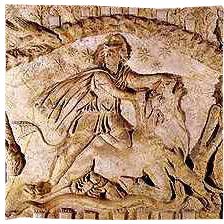The fact that “December 25th is the birth date of Christ” is nothing but a universally accepted myth perpetuated by the church.
Why December 25th? The date was already celebrated as the Natalis Solis Invicti in honor of the sun god, Mithras by Roman citizens. They decorated their homes with greenery, exchanged gifts and gathered for festive meals on that date, observed just after the winter solstice.
 It was a practice for early Christian church to blend pagan customs with Christian rituals to win converts. Easter is a prime example with the Easter Bunny being a remnant from pagan times. When the fathers of the church decided to settle upon a date to celebrate the event of the birth of Christ, they wisely chose December 25th, since it coincided with the annual pagan festival celebrated in the honor of the sun which was too deeply entrenched in popular custom to be set aside by Christian influence.
It was a practice for early Christian church to blend pagan customs with Christian rituals to win converts. Easter is a prime example with the Easter Bunny being a remnant from pagan times. When the fathers of the church decided to settle upon a date to celebrate the event of the birth of Christ, they wisely chose December 25th, since it coincided with the annual pagan festival celebrated in the honor of the sun which was too deeply entrenched in popular custom to be set aside by Christian influence.
The pagan festival with it's riot and merrymaking was so popular that Christians were glad of an excuse to continue its celebration with little change in spirit and in manner. December 25th was a festival long before the conversion of the Germanic peoples to Christianity, it seemed fitting that the time of their winter festival would also be the time to celebrate the birth of Christ.
So, now you know...
Why December 25th? The date was already celebrated as the Natalis Solis Invicti in honor of the sun god, Mithras by Roman citizens. They decorated their homes with greenery, exchanged gifts and gathered for festive meals on that date, observed just after the winter solstice.
 It was a practice for early Christian church to blend pagan customs with Christian rituals to win converts. Easter is a prime example with the Easter Bunny being a remnant from pagan times. When the fathers of the church decided to settle upon a date to celebrate the event of the birth of Christ, they wisely chose December 25th, since it coincided with the annual pagan festival celebrated in the honor of the sun which was too deeply entrenched in popular custom to be set aside by Christian influence.
It was a practice for early Christian church to blend pagan customs with Christian rituals to win converts. Easter is a prime example with the Easter Bunny being a remnant from pagan times. When the fathers of the church decided to settle upon a date to celebrate the event of the birth of Christ, they wisely chose December 25th, since it coincided with the annual pagan festival celebrated in the honor of the sun which was too deeply entrenched in popular custom to be set aside by Christian influence.The pagan festival with it's riot and merrymaking was so popular that Christians were glad of an excuse to continue its celebration with little change in spirit and in manner. December 25th was a festival long before the conversion of the Germanic peoples to Christianity, it seemed fitting that the time of their winter festival would also be the time to celebrate the birth of Christ.
So, now you know...
